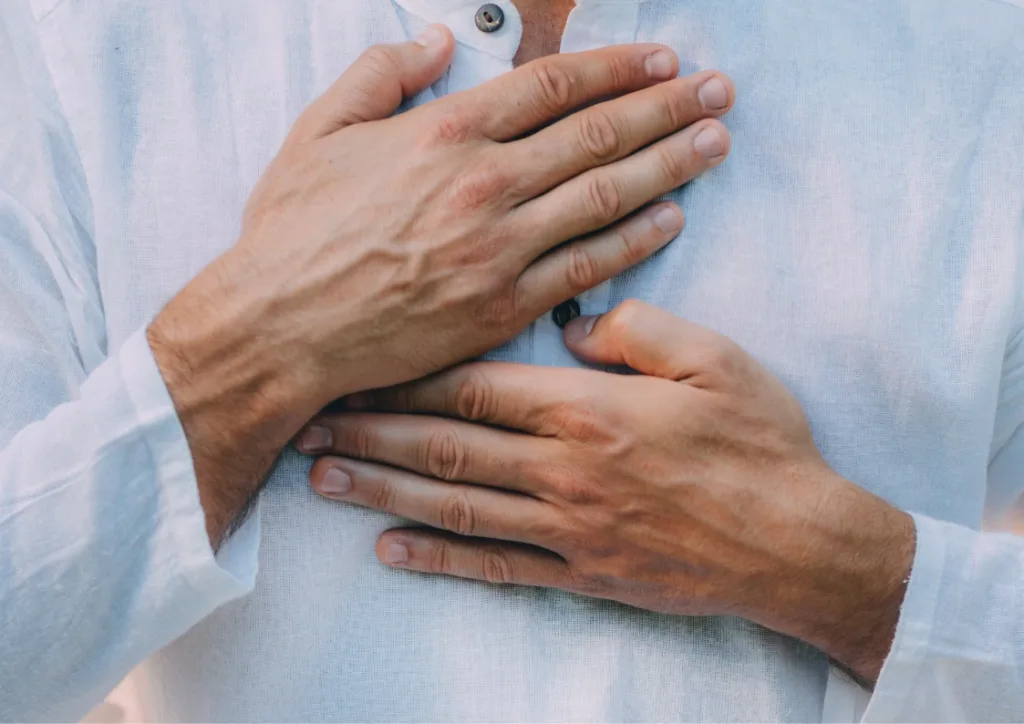Stress Management for Carers

Are You Caring for a Loved One?
Caring for others is a meaningful journey, but it can also be emotionally and physically demanding. Our 8-week mindfulness program is specifically designed to support carers, helping you reduce stress, build resilience, and enhance your wellbeing.
Why Mindfulness?
Mindfulness is a transformative practice that enhances our ability to deal with stress and difficult emotions by teaching us to focus on the present moment with awareness and proactive acceptance. Through mindfulness, we learn to break the cycle of overthinking and reduce emotional reactivity, increasing our sense of calm and clarity, and empowering us to face life’s challenges with greater ease.
Scientifically proven benefits of mindfulness practice are:
- Stress Management
- Managing Insomnia
- Increased Attention and Focus
- Boost in Working Memory
- Emotion Regulation
- Pain Management
- Support in Weight Management
About the Program
This 8-week program is specifically designed to support carers in managing the emotional and psychological demands of caregiving. Each week introduces a different topic to help carers connect with specific aspects of their experience through the lens of mindfulness.
Sessions combine accessible mindfulness practices with relevant psychoeducation and group reflection, allowing participants to apply each week’s insights to real-life caregiving challenges.
Program Aim
To equip carers with evidence-based tools to manage stress, enhance emotional resilience, and cultivate self-care practices, enabling them to meet the challenges of caregiving with greater ease and balance.
Outcomes
By the end of this 8-week program, with a 1-week break for reflection and practice, you will:
- Find practical tools to handle stress and daily challenges.
- Build emotional strength to better cope with caregiving.
- Improve focus and think more clearly, even on busy days.
- Bring more moments of calm and balance into your life.
- Start healthy habits that support your overall wellbeing.
These outcomes are achieved through a combination of evidence-based theory and practical exercises designed to deepen understanding and support the application of mindfulness in daily life.
Program Structure
The Practice of Mindful Eating
Aim: Transform mealtime into a moment of calm and connection, providing a pause from caregiving demands.
Benefits: Encourages gratitude, enhances emotional awareness, and promotes a sense of grounding during daily routines.
The Practice of Mindfulness of Sight
Aim: Explore how habitual visual perception and automatic judgments can contribute to mental overload and stress in your caring role.
Benefits: Supports mental clarity, reduces reactivity, and encourages more balanced responses to what is observed in others, oneself, and the surrounding environment.
The Practice of Mindfulness of Sound
Aim: Build greater awareness of your listening habits—both with yourself and those you care for—using mindfulness and sound-based practices that support more compassionate communication.
Benefits: Improves attunement and presence in conversations, supports clearer internal awareness, and enhances communication.
The Practice of Mindful Movement
Aim: Cultivate a holistic sense of wellbeing by integrating mindfulness with physical movement.
Benefits: Improves body awareness, reduces physical tension, enhances mental clarity, promotes relaxation and reduces stress.
Use this time to integrate the practices learned so far and explore how mindfulness can support your caregiving role daily.
The Practice of Mindful Creativity
Aim: Reconnect with your inner artist to increase wellbeing in your daily life.
Benefits: Enhances emotional awareness, increases positive affect, and reduces stress levels.
The Practice of Mindfulness for Difficult Emotions
Aim: Explore mindfulness techniques to handle the emotional challenges of caregiving and daily life with greater ease.
Benefits: Builds resilience, supports a healthier relationship with difficult emotions, reduces stress and enhances emotional wellbeing.
The Practice of Mindfulness for Difficult Thoughts
Aim: Strengthen your capacity to observe and relate in a healthier way to difficult thoughts—whether about your caring role, the person you support, or yourself.
Benefits: Promotes cognitive clarity, reduces entanglement with unhelpful thoughts, and supports a healthier and more balanced inner dialogue.
The Practice of Mindfulness of the Heart
Aim: Integrate self-compassionate practices into your daily life to support emotional resilience and a balanced mind and heart.
Benefits: Enhances psychological wellbeing, reduces self-criticism and negative self-talk, and fosters stronger connections with loved ones and those you care for.
Suitability
Although this program lays the foundations for individuals with no experience in meditation or mindfulness, it is equally suitable for more experienced meditators who wish to refresh their practice, deepen their understanding, or integrate mindfulness more fully into their daily lives.
Regardless of your experience level, this program offers valuable insights and techniques to enhance your mindfulness journey.
Please be aware that mindfulness training, though beneficial for many, may not be suitable for individuals experiencing certain mental health conditions. If you have any of the following conditions, we kindly ask that you consult with your primary care physician or family doctor, or contact us directly, prior to registering for the course. This will allow us to discuss whether the program is right for you and ensure your well-being throughout the training:
- Severe depression
- Bipolar disorder
- Schizophrenia
- Severe anxiety disorders
- PTSD (Post-Traumatic Stress Disorder)
- Dissociative disorders
- Acute phases of mental health disorders
Your health and safety are our top priorities.
Thank you for your understanding and cooperation.
Facilitator Background

Dr. Olga Lucia Gamboa Arana, a cognitive neuroscientist, psychotherapist, and mindfulness researcher integrates her scientific expertise and practical knowledge into this program. Since starting her mindfulness practice in 2009, she has witnessed firsthand the transformative effects of applied mindfulness. This inspiration led her to deepen her practice and expertise, becoming a mindfulness teacher, and integrating mindfulness into her research, as well as in therapy and coaching sessions.
Her teaching style is open, direct, collaborative, and practical, tailored to support each individual’s unique path toward well-being.
To explore Dr. Gamboa Arana’s recent publications on mindfulness and wellbeing, visit the EQness Research Hub.
Stress Management for Carers in Sydney - Schedule (2025)
8-Week Stress Management for Carers In Person (Sydney)

8-Week Training (+ 1-Week Break)
Session Duration: 75 minutes
Dates: TBA
Time: TBA
Venue: St Luke’s Clinic, Terrace Room
18 Roslyn St, Potts Point NSW 2011
Price: TBA
How to Pay and Register
Click on this Link to pay securely through Stripe and complete your registration.
Please note: processing fees apply.
Via PayID (Save on Processing Fees):
- Pay to hola@eqness.com via PayID.
- Include the reference: your name + ‘SMC’ to help us identify your payment.
- After payment, email us at hola@eqness.com to confirm your registration.
What is Included
Fees are in Australian dollars and include:
- Manual and Handouts
- Recorded practices for daily home practice
- One month of access to the premium version of MindApps, with a 50% discount on an annual subscription thereafter.
Cancelation/Refund Policy
Participants are eligible for a full refund if they cancel their enrollment more than 7 days before the program’s start date. To cancel your enrollment and request a refund, please contact us with your registration details.
Please note that payments made via Stripe will incur a non-refundable processing fee charged by the payment provider.
Get in Touch
Service Inquiry Form
Please fill out the form below with your details and inquiry. We aim to respond to all inquiries within one business day.
